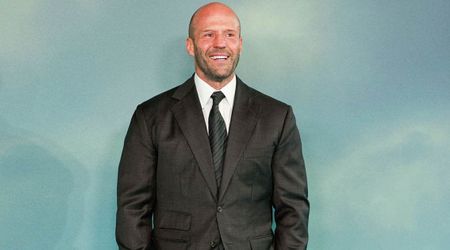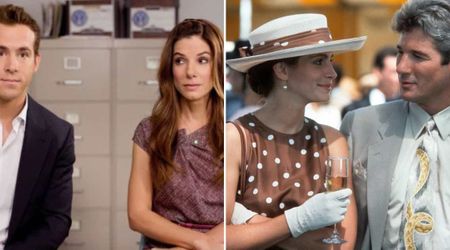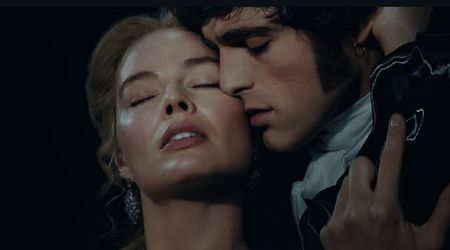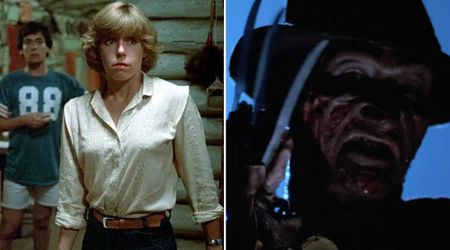'The Clark Sisters: The First Ladies of Gospel': Lifetime does justice to Gospel's Dreamgirls despite muddled story

Lifetime's ‘The Clark Sisters: The First Ladies Of Gospel’ was directed by Christine Swanson, written by Camille Tucker and executive produced by Queen Latifah, Mary J Blige, Missy Elliott, and Dr Holly Carter. It stars Raven Goodwin, Angela Birchett, Christina Bell, Sheléa Frazier, and Kierra Sheard as the sisters and Aunjanue Ellis as Mattie Moss Clark, the mother of the Clark Sisters.
And that line-up is enough to tell you this biopic, the only authorized one of the sisters, is going to be one that focuses on their story. This is a movie about six black women who changed the world of music forever and it is told by six black women who have each influenced the entertainment industry in unique ways. And the six stunning performances in the movie must also be commended, including Sheard who plays her real-life mother Karen Clark Sheard, because their understanding of and love for gospel music shines all the way through.
And while we can sing praises about everything from the movie’s music and cinematography to the journey of the Clark Sisters themselves, including how they redefined gospel music, there are a few people in this film whose individual stories really stand out. And it’s these stories that you yearn to hear more of once you’re done with this all-too-short biopic.
Mattie Moss Clark: The Matriarch
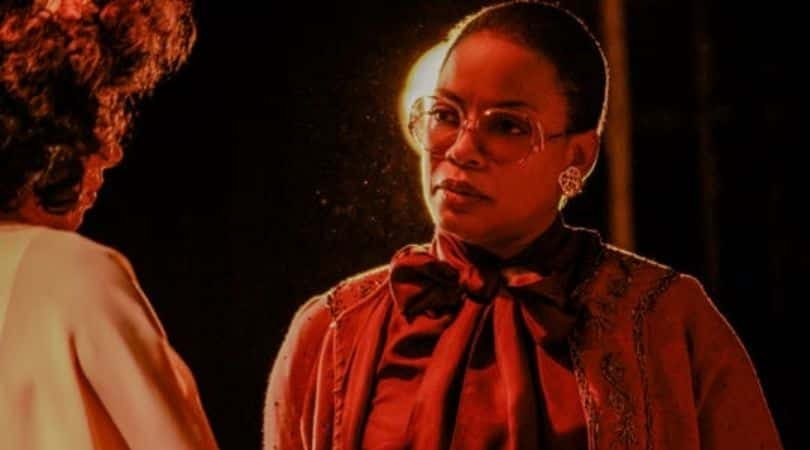
From being a mother, gospel musician and choral director who created the Clark Sisters, to being an accomplished musician and vocalist herself who revolutionized gospel music and how it was taught, Mattie Moss Clark was a force to be reckoned with long before and long after the group was formed.
In the biopic, you see Mattie being the driving force and creative genius behind the group and Ellis is absolutely remarkable in the role. You feel her presence throughout the movie and you experience her persona through the screen. It sometimes feels like she's speaking directly to you.
But despite her being the singular figure whose relentless drive brought gospel music to the mainstream via her daughters and despite it being impossible to not be drawn to Mattie as the story progresses, this movie is about the sisters themselves and their journey to becoming legends and making history. And to that end, you can't help but leave wondering just who was this absolutely remarkable woman driven to such greatness?
Hopefully, we get an equally well-made biopic of her someday, but in the meantime, we can read up about her feats instead.
Denise Clark: The prodigal daughter who never returned home
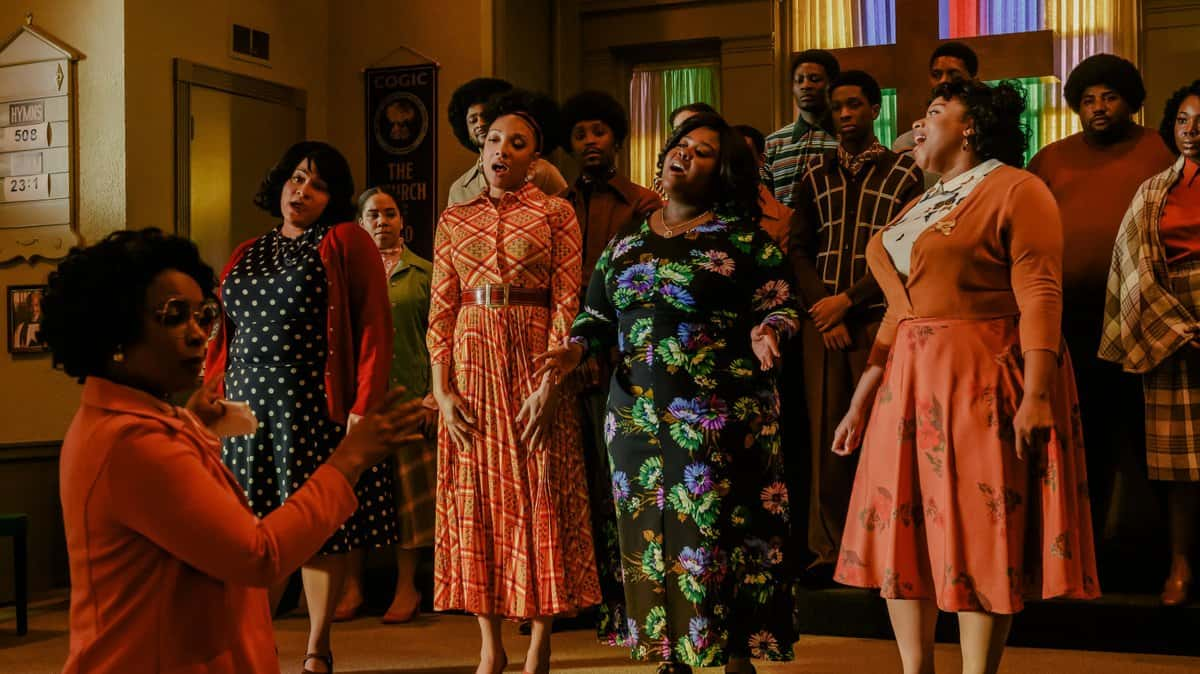
Mattie was systematic in how she built the group and while ensuring there was no lead vocalist she also trained each sister to sing a specific part that suited their vocals. Denise Clark , played by Raven Goodwin, was a soprano known for her piercing high pitched voice that was clearly audible even when she sang within a choir and she often garnered praise for her runs and high melismas. Her departure no doubt affected the dynamic of the group, yet we do not really hear much about this struggle in this biopic. Granted, their exquisite training meant they could easily adjust their voices to pave the way for a different sound, but the 'Clark Sound' - which is what their unique style is called - would not exist without Denise.
In addition to that, the biopic also does not fully address what went wrong in the four-year gap between releases that caused a large enough rift for Denise to exit the group. Her departure was heartbreaking for fans and any space that mentions the sisters sees streams of fans demanding to know why she hasn't returned to perform with her sisters since then.
It's hard to imagine that Denise having children out of wedlock was the only reason she was forced to quit. After all, the sisters had braved controversy and backlash before such as when many refused to play their reggae-influenced 'You Brought The Sunshine' because they feared the song would find its way into clubs and other spaces of 'ill-repute'. But soon, churches everywhere embraced their music.
So what exactly could have gone so wrong that a tight-knit family that went through thick and thin together could suddenly be ripped apart? Was it really just a matter of their image being 'tarnished'? Is that really enough to break apart a family, especially one that preaches the word of a God that is merciful and forgiving or was there more brewing under the surface, little cracks in the bond that tied them together and Denise's pregnancy just happened to be the final blow?
Unfortunately, the movie doesn’t really answer that for us. We see an argument, we see Denise walk away and we never hear from her again.
Denise relocated to California and began a ministry there and Twinkie released an album titled 'The Generations' in 2020 that featured Denise's oldest son, Larry Clark. But Denise has not performed or given any interviews with her sisters since and the biopic does not give fans any real answer as to why despite producers stating they reached out to Denise when creating this movie.
Twinkie Clark: The Unsung hero
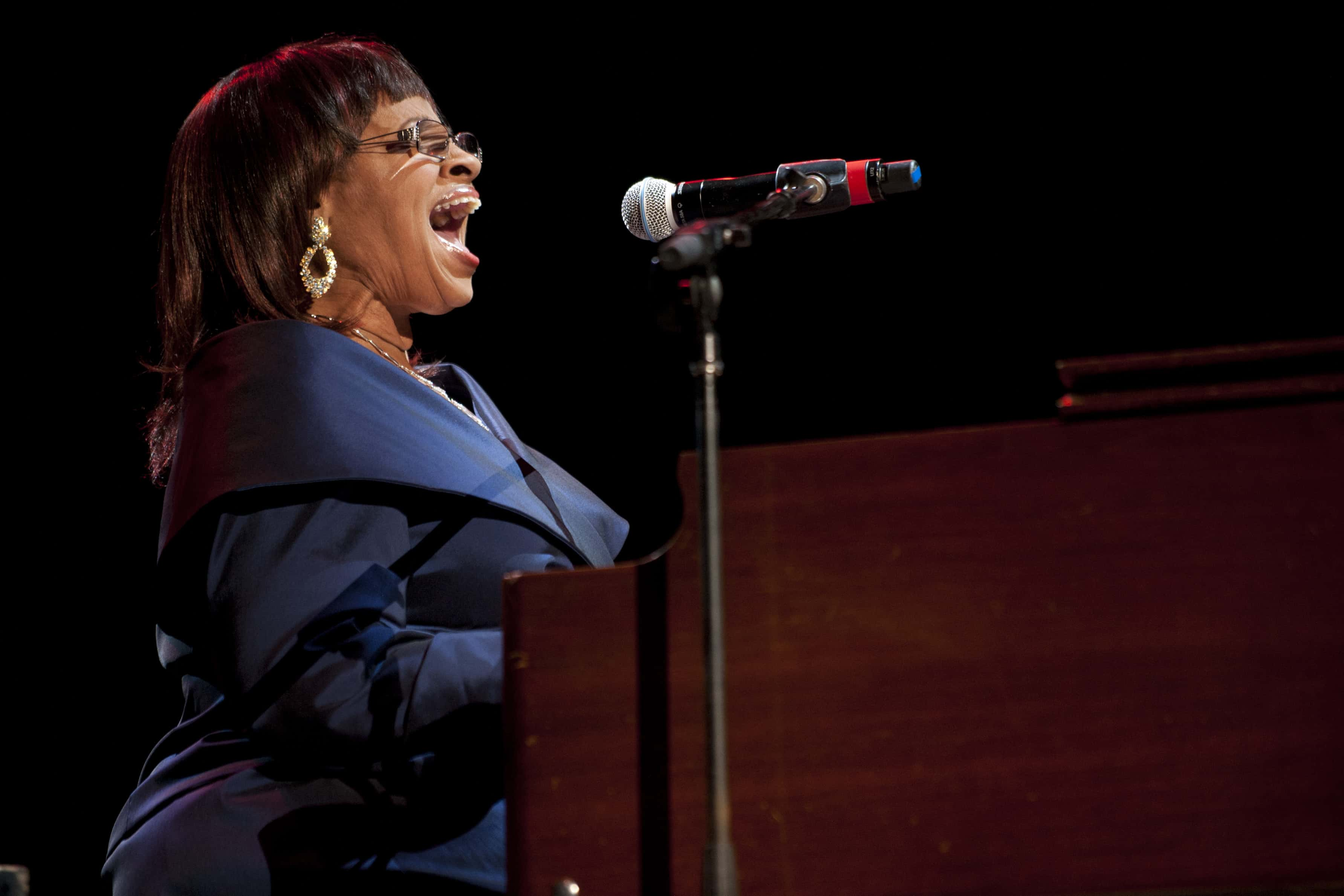
One thing this biopic does do well, however, is give Twinkie Clark (Christina Bell ) her due as the unsung hero without whom the Clark Sisters would not be where they are today. The fact that Mattie, whose standards were ridiculously high and often impossible to meet decided Twinkie would take over the musical control following her passing says everything about this sister’s creative genius and musical prowess.
Twinkie was originally the group's main songwriter, music and vocal arranger and producer. Often referred to as 'the heart of the Clark Sisters', she was at the core of what made the group so special. And in this biopic, you get proper glimpses into just how integral Twinkie was - and is - to the 'Clark Sound'.
Ultimately, this is a beautifully made story of the genre-defining and legendary Clark Sisters. It does not necessarily add new details to the story we already know, but it sheds light on a tale very few have heard. The creators who brought this project to life tell a story that respects the journey of the ‘First Ladies of Gospel’ without delving deeper into the cracks in that journey or the stories that were happening alongside it. It tells the Clark Sisters' story well, even if it misses out details people were probably hoping to see.

